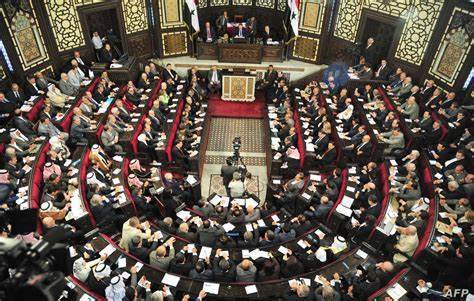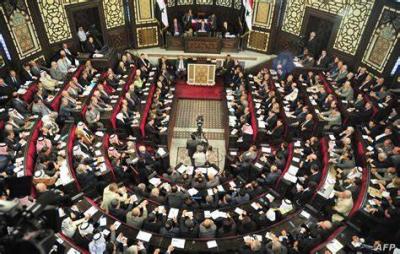Syrians in government-controlled areas headed to the polls today, Monday, to elect a new parliament, in a vote that is not expected to yield any significant surprises and which opposition political groups have described as a farce. Voters are selecting 250 members of the parliament (People's Council), which has little real power in the Syrian presidential system, with two-thirds of its seats reserved for members of the Ba'ath Party led by President Bashar al-Assad.
More than 13 years into the civil war in Syria, the Assad government now controls most of the country with help from Iran and Russia. However, northeast Syria remains under the control of the Kurdish-led Syrian Democratic Forces, while the northwest of the country is held by Islamists and Turkish-backed opposition. More than five million Syrian refugees abroad are unable to vote.
The Syrian economy remains in dire straits, with high inflation and a lack of foreign investment due to Western sanctions, alongside the stalled UN-led process aimed at finding a political solution to the conflict.
At one polling center in the capital Damascus, government employee Bassam Badran expressed hope that the new People's Council would improve the economic situation. He stated, "We are always hopeful that each phase will bring goodness to this country, with tangible steps on the ground and noticeable improvement for the Syrian citizen and their economic and living conditions."
The Syrian Negotiation Commission, based in Istanbul and representing a wide coalition of major opposition groups, conveyed a strong sense of disbelief among the opposition that the elections are genuine. Commission member Mohammad Mazhar Sharbaji stated in a social media statement that all the regime is doing in these parliamentary elections is a "trick" to re-create itself as a "totalitarian and authoritarian" system. He added that Syria would not become a real state unless parliamentary and presidential elections were conducted within the framework of a political settlement in accordance with UN Resolution 2254, which was unanimously adopted by the Security Council in 2015 and calls for a ceasefire.
In the Syrian region of Suwayda, a stronghold of the Druze minority, where protests against Assad have been ongoing since August, dozens of demonstrators organized a protest demanding a boycott of the elections. An activist raised a sign describing the expected council as resembling puppets that move at the will of others. The protesters took to several highways to block access to the ballot boxes, and activists shut down a polling center in one town, with residents reporting that most voters responded to calls from local elders to boycott the elections.




